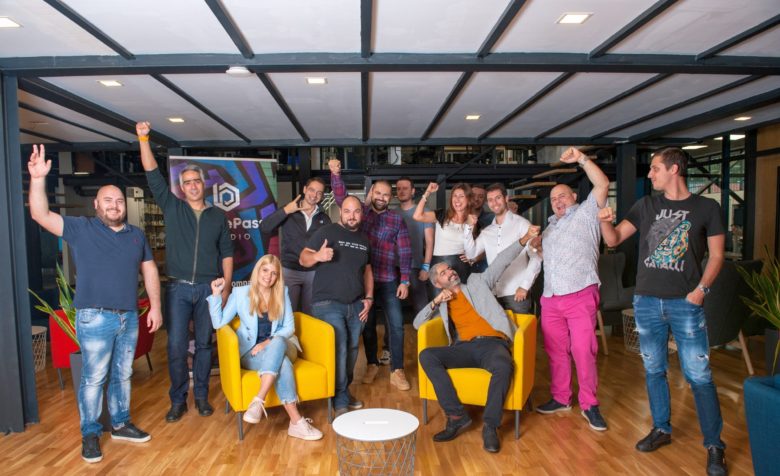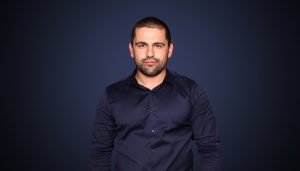Alternative Models vol. 1: What Can Startup Studios Bring to the SEE Ecosystem? Q&A with BattlePass Studio

Isn’t it the dream of every entrepreneur to find somebody that can help them create a venture from an idea-on-a-napkin, develop their market-entry strategies, help them build their founding team, and raise capital to grow? By now, the local startup ecosystem is well acquainted with the capabilities and benefits of incubators and different stage accelerators but to many founders and corporations, the notion of a startup studio is still a mystery.
Simply said, what differentiates startup studios is their ability to achieve high impact with their multiplier effect. Unlike accelerators, which are very fundraise-heavy and not suitable for under-developed startups, or incubators, which normally work with founders who are one step beyond the idea phase, startup studios offer entrepreneurs and corporations the opportunity to validate, execute and iterate their startup ideas. Startup studios support founders throughout their entire startup journey – everything from helping them create the right business models and build their user flows to developing talent acquisition strategies and securing funding. Moreover, even though the goal of startup studios is to help build as many ventures as possible, the focus is not on owning a portfolio of companies but rather owning an impactful infrastructure of pooled resources such as talented people, optimal processes, and a strong network.
Examples of such studios, which have been proliferating in the USA and Western Europe during the last 10 years, are the French Adventures, the Brussels Boot Ventures, and the German Liquid Labs. The CEE ecosystem is following suit and now startup studios are rapidly becoming more and more common here – Poland and Estonia already have a number of venture building studios and in 2020 Bulgaria also joined the club with the launch of BattlePass. We talked with the founder of BattlePass Studio, Peter Lozanov, who shared more about the story of his studio, the benefits it offers to founders, the obstacles that they have encountered along the way as well as the plans they hold for the future.
Trending Topics: Why did you choose the model of a startup studio?
Peter Lozanov: I heard about this a year and a half ago when I was struggling with one of the startups I have a stake in. A friend of mine told me that we don’t need funding for capital support but instead, we need more in-depth industry knowledge. He suggested that I reach out to startup studios or venture builders that have this type of experience. Before that, I have never heard of startup studios and I was curious to find out how they work. After reading some articles, I saw a very strong value proposition in the concept. One year later when the Covid-19 crisis hit, most of the businesses that I was running back then in the fields of events and traveling, as well as my creative and advertising startups were affected very negatively. So I decided that it was the right moment to start something new and something that will help entrepreneurs to get back on their feet and create better models.

Is there any specific reason you are focusing on verticals like gaming, entertainment, and travel?
When we select which startups to work with, we pay particular attention to the segments and vertices of the companies – our goal is to provide the most value to the starting teams, so we choose to work with the verticals that our team has expertise in. The gaming vertice is quite interesting not only because it is growing but also because it is underserved – at a global level, there are more gamers than players of any other sport, which makes video games the number one sport of modern times. A lot of the products and services that are there for sports fans are not available for gamers and we believe that this industry can grow. We are not particularly interested in finding projects that will be the next game or mobile application but instead we are more interested in finding infrastructural projects that are offering fans ways to have a better gaming experience. Moreover, since there are many people from our team who have long experience in building and scaling travel and mobile apps, working with startups from the travel vertical also makes a lot of sense to us.
From the perspective of a startup founder when is a partnership with BattlePass Studio a better alternative to other ways of developing an early-stage business?
Our value proposition is pretty simple – we help founders and teams in the very early stages of their ventures by adding resources and people to their teams, helping them speed up the development process, and helping them validate their ideas and assumptions. Essentially, we save them time and assist them to get funding faster. That is why we believe that the best time to partner with BattlePass is during the very early stages of the startup development. Nevertheless, we are in communication with some more mature businesses, which have specific issues with their teams and operations and need some change and external know-how or third-person perspective to help them solve their current problems.
If you had to compare your value proposition with that of an incubator or a pre-seed accelerator what would be the main differences?
What accelerators offer is a 3-6 months program in which participants receive advice and access to the network, therefore, they are offered guidance but not actual tools. Accelerators cannot promise founders and teams to help them solve their problems, whereas our model is quite different – we do not limit our involvement in a company with a timeframe. When we start working with a company we receive equity and engage long-term. Another thing is that we are not just advising and providing access to the network but we work with them on their current needs. For example, if there is a need to build a fast MVP but there is only one developer in the team, we can onboard five developers from the BattlePass network to speed up the process, so that we can start with market testing and fundraising. When it comes to fundraising, we are going an extra mile from the typical incubators and accelerators by helping founders to understand how to structure their pitches, present themselves in front of investors and build their debt and P&L forecasts. The teams that are working with startup studios are decreasing their chances of failure and this is something that most of the investors and VCs from Western markets definitely like.
Can you share a little bit more about your investors’ network?
Our goal is to offer investors a chance to receive information from the startups from the very early stages and they might be the first investors to tap in. We often offer direct investment but sometimes other companies in the network are investing in software development, marketing, and product designs, so we are able to build the first version of the product. But after that we need some pre-seed capital to test the market and kick off the operations, so we are not always ready to pitch to VC. We prefer to initially work with angel investors before getting to pitch in front of VCs. We aim to have a private community of investors who would be able to receive information about startups from the very early stages. Angels would be able to tap in with small investments and be a part of the cap table. This approach not only helps the founders but also reduces the risk for the angel investors as they can rely on the team and processes of BattlePass Studio.
What is your business model? Besides taking equity how do you finance your operations?
We have strict processes that help us filter the teams and startups that we want to work with. There are two models for early-stage startups and we also have a corporate model that we plan to introduce later on. The first model for early-stage startups which is called “Co-Founding Together” is when our team is the idea-driver who comes up with an idea and starts looking for a co-founding team of a CEO, CTOs, and Product Managers, to help us build the company and run it once it is operational. In this case, we are funding the venture in the first stage and, therefore, we are getting a higher percentage of equity, which usually ranges between 20 and 40%. The other model is when startups with a solid idea come to us looking for help and solution to their problems. In this situation, we typically charge a down payment in cash and later equity that is typically related to reaching certain milestones and goals. Normally, we charge in cash in the beginning and then receive equity if we succeed to achieve our goal together. This is also a way to filter teams that are truly motivated and ready to invest in their idea from teams that are just tapping into a niche but without any personal commitment in that.
Besides personal commitment, when startups pitch to you, how do you pick the right opportunities?
Since the teams that pitch to us are in the very early stages and most often do not even have a company set up, we use a process called an Internal Assessment Process. We have developed 7 different criteria each of which with 3 to 5 subcriteria measurements and thus allow us to come up with a numerical score of the project in consideration. Every project that the assessment has calculated as having a score higher than 3, we consider suitable to work with, while the ones that are below three, we believe would be hard to turn into a venture. The different criteria considered are the team, the market opportunity, the investment needed to get running, etc. However, if a company is less than 3, this does not mean that the idea or the team are bad, it just means that our team will not be able to help. That is the goal of the assessment process – we want to be sure that we can bring value to the process of the business development and then we offer the model.
What is the current traction of BattlePass and what are your main goals and priorities for 2021?
We started working on BattlePass in April 2020 and we managed to officially launch in October. During the process, more than 50 companies presented their ideas to us and from those 50 companies, we have signed contracts with more than 10. In the beginning, we expected that we would be working mostly with junior founders, while in reality, a lot of experienced professionals came to us, some of them even managing teams in corporations. Our goal for the next few years is to expand our operations in the region – Romania, Serbia, Greece, and North Macedonia, and later on, I hope we will be able to offer our services in the Turkish market in 2022. During our first two-three years, we will work on establishing a way for startups to easily get to the network they need in the region. So we will focus on providing founders with the opportunity to connect to the investors and strategic partners. Simultaneously will continue working on establishing good connections in the US and UK markets, so that in the long term we can be the bridge between the Balkans and the Western markets.
Do you think that there is a demand for corporate startups in Bulgaria and in the region?
In Bulgaria, this is not something that has been tried a lot so managers are not quite experienced with it. We have already talked with 2-3 big companies that are interested in such an approach for innovation. Therefore, I hope that in the next two years we will present our first partnership with a corporation that is going to develop a corporate accelerator and internal entrepreneurship project with BattlePass. Corporations have two options – either to look for innovation internally in their departments and teams or to look for innovation outside the company by running corporate acceleration programs or sponsoring ideas in the sectors they are interested in.
From your perspective, what are the biggest challenges and opportunities for developing BattlePass Studio?
The biggest challenge for us right now is to explain how we work, not only to founders but also to partners and investors because the model is not well-known in the region. We need to educate the market and find out how to present ourselves in the right way to stakeholders. Being venture builders, the second obstacle for us is that unlike other startup studios that work with 2-3 projects per year, we have a different model and we work with 10-15 startups per year simultaneously. Our goal is to scale them using different teams from our network that are external to BattlePass, but we are yet to prove whether this model will work.





























